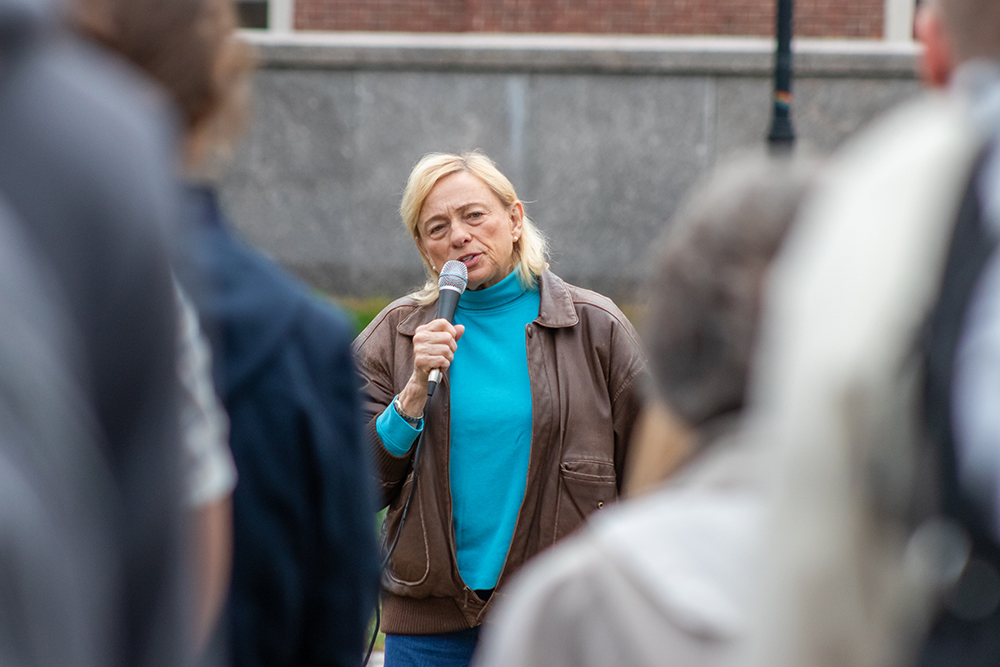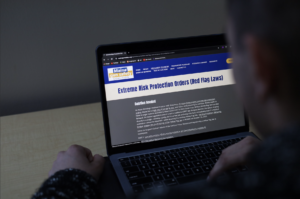Democratic Governor Janet Mills delivered the State of the State Address on Jan. 30, 2024, in which she addressed completed projects since her inauguration in January 2019 and plans for Maine’s future. Her highly anticipated speech went through state-related topics since COVID-19: the economy, healthcare, housing, the opioid epidemic, child safety, state tragedy and their effect on the state budget.
Mills credited herself and her administration with growth since the pandemic, announcing a 9.2% increase in the GDP, a 2.4% population increase, a 24% personal income increase and a 12% worker productivity increase. She also addressed initiatives such as the Maine Jobs and Recovery Plan, which gave $175 million to thousands of Maine businesses, and the “Made for Maine Health Coverage Act” law.
“Before I took office, Maine was frequently at the bottom of the list of states for economic growth. This improvement didn’t happen by accident. With the support of the Legislature, we have been making investments in Maine people that have helped create the conditions for robust economic growth,” said Mills.
Mills went on to highlight her hand in creating the Emergency Housing Relief Fund, which has supported 7,000 Mainers since its enactment, and the Housing First Program, a long-term plan that addresses the needs of the homeless. Buckling down on her fight against the opioid crisis, Mills emphasized her actions since her inauguration in expanding Medicaid, distributing Naloxone, enacting a new Good Samaritan Law, creating the OPTIONS program and inflating Medication-Assisted Treatments to prisons, prioritizing recovery and prevention in the war on drugs.
“Despite the very real challenges we have faced over the past several months, our state is getting stronger every day,” Mills said.
For the future of Maine, Mills plans to implement various programs to supplement her existing courses of action. Of prime concern is the long-term maintenance of the economy. Budget shortfalls in states like New York, Maryland and California, were shown to negatively affect the quality of life for civilians after the federal pandemic funding ended.
Eager to keep Maine’s projected $265 million revenue by the end of 2025, Mills plans to incorporate programs this upcoming year to balance the state budget and optimize citizen happiness.
The Dirigo Business Incentive program will take effect next year, allowing businesses to get tax credits to make investments and train employees. Maine’s first paid family and medical leave program’s benefits will also begin two years from now. Additionally, Mills proposed dedicating $22.6 million of the revenues to public school funding and reforming MaineCare payment rates.
To optimize the previously stated Emergency Housing Relief Fund, Mills proposed $16 million to help those struggling for stability. She plans on continuing her work expanding prevention programs in schools to keep young people from abusing drugs, to which she credits these policies as the reason for an expected 16% fatal overdose decrease from 2023.
Through a supplemental budget, Mills hopes to expand teams of caseworkers to better child welfare in Maine. Giving priority to better pay, the governor will ensure fair compensation.
“My administration has been guided by the belief that to strengthen our state, we have to invest in our greatest asset: the people of Maine. Those investments are working, but we still have more to do to ensure that our state is the best place in the nation to live, work, and raise a family,” Mills stated.
In Governor Mills’ secondary State of the State address, Mills touched on the more recent hardships in Maine. In particular, she talked about the recent heartbreaks: the Lewiston shooting, catastrophic storms that changed the landscape of Maine and the looming effects of global warming. Nevertheless, Mills remains optimistic, saying that the resilience of Mainers gives a clear path to a more positive future. She proposed adding $5 million to the Community Resilience Partnership to give citizens the tools to improve infrastructure for weather events and increase gun purchase safety measures.
In the wake of hardship, Mills encourages Mainers not to harden uncharitable positions of each other, to not lose themselves and to work on finding solutions in the honor “for the victims of yesterday’s horrors, for the survivors of today, and the vulnerable of tomorrow.”











